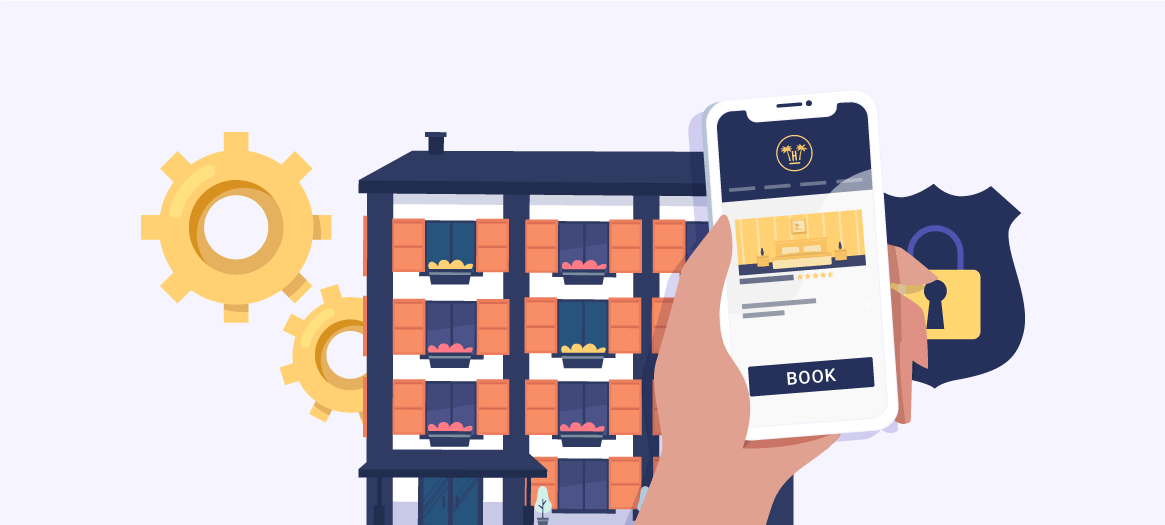
Technology 3:30 Min read
Why is a hotel-specific technology necessary?
Nowadays, all sectors are going through a great revolution: data revolution.
Technology advances are enabling the different industries to immerse themselves in the net, transferring and managing a vast amount of data. One of these sectors is the hotel one, for which contact details are fundamental when defining the right marketing, sales and revenue strategies; in other words, when communicating and converting customers through the different channels.
Nevertheless, many of the technological advances that enable to centralise and manage these contact details haven’t been conceived with the needs of tourism in mind. Hotels increasingly need a specific technology that considers the idiosyncrasy within the sector and that makes it possible to obtain, manage and make the most of guest details in order to optimise strategies.
How can a specific technology help the hotel to grow?
Technology for hotels can add significant benefits to the property at least in terms of four aspects: hotel management, data compilation, guest experience and the reputation of the hotel.
1. Technology in hotel management.
Technological tools do not need to be solely used to optimise marketing strategies since they are also an opportunity to increase effectivity when performing the property’s own processes. A technology we know as PMS (Property Management System) , and that takes care of the property’s daily arrangements.
This hotel management tool enables to improve marketing and revenue actions as it makes it easier to plan and apply rate changes, offers and quotas , as well as room availability, check ins and check outs among other information. But also, some applications that make it possible to produce performance reports to analyse and optimise the team’s efforts and their strategies.
Other technological tools that are necessary, such as certain CRM (Customer Relationship Management) with automation, make it possible to program tasks or processes so that they are repeated in time. Automations that speed marketing and sales actions up and also minimise the efforts of your hotel’s employees so that they can focus on more important tasks.
2. Booking details.
The obtention of real and verified data to apply improvements on products or services, and also to improve marketing strategies is fundamental. And as you may have observed, the difference when obtaining relevant contact details during the booking process is entirely distinct if this booking is made through the direct channel or the commissioned one.
On the one hand, the hotel that has its own booking engine does have the possibility to obtain reliable data during the direct sale process. However, currently up to 80 % hotel bookings can come from commissioned channels. And when hotel sales are made through these intermediaries, there is a great lack of contact information. This happens because these channels filter the information that makes it to the property. This means that there is valuable information that third parties keep for themselves.
To alleviate this situation, hotels must look for alternatives that enable them to obtain enough qualitative information, the right Hotel Data, to optimise their strategies. One of these processes is the use of captive portals where users can authenticate themselves and register through the WiFi network, for example, of the hotel. A system that makes it possible to capture guest details and that can become a tremendous competitive advantage versus intermediary channels.
Even though there are properties that worry about the economic investment related to this technology or that are unaware of the existence of these tools, this system makes it possible to acquire valuable guest data, offering the opportunity to integrate them with a CRM to organise, segment and study guest profiles in depth.
3. Guest experience.
There are guest segments that can no longer enjoy their hotel experience without technological services or applications. From the very moment they make their booking, the processes prior to the check in and the arrival to the hotel itself to contracting any product or service until the end of their stay. At some stages during the experience or customer journey, some guests cannot live without the presence of a technological application.
This is due to how easy it is for guests to request to the hotel products or services through their mobile devices. There are increasingly more hotels that bet on adding more electronic devices to their facilities, still, it is true that this feature is what undoubtedly favours the improvement of the guest experience.
Also, as previously mentioned, gaining access to the hotel’s WiFi, which is nowadays a must for the guest experience, makes it possible to obtain relevant information to complete the Hotel Data. Therefore, data collected in these processes can also be analysed by the hotel. Additionally, these details reflect real results of the guest experience; useful information to launch or improve the hotel’s loyalty strategy.
4. Hotel reputation.
At a time when the reputation of a property is key for its success or failure, technology once again can help us with the impact comments on social media and reputation portals have.
For example, instead of performing quality surveys manually, there are properties which prefer satisfaction surveys with applications that guests can access while in-house.
This enables the hotel itself to control their online reputation. But, furthermore, it allows the property to solve incidences during the stay so that the opinion of the guest is not negative but positive once their doubt or problem has been solved – an optimal way to anticipate potential conflicts and to improve the scores and averages on these opinion portals.